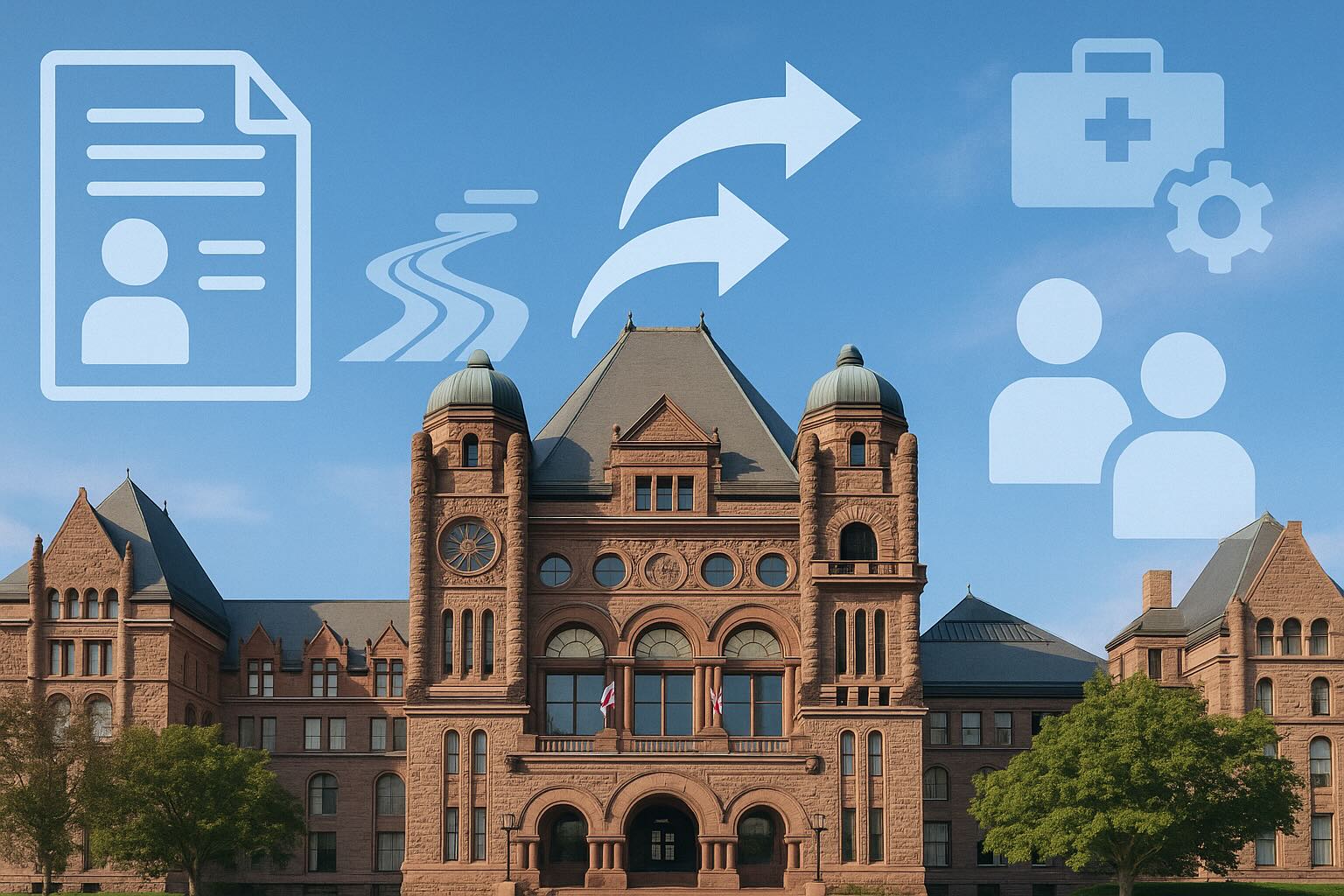The Ontario Immigrant Nominee Program (OINP) has recently introduced a pilot program named Regional Economic Development through Immigration (REDI). The program, open until December 31, 2025, aims to attract up to 800 highly skilled immigrants to four remote and northern regions: Lanark, Leeds and Grenville, Sarnia-Lambton, and Thunder Bay. Applicants who secure a provincial nomination through this pilot can use the nomination certificate to apply directly for permanent residency with Immigration, Refugees and Citizenship Canada (IRCC).
1. Program Overview: Additional Allocations for Four Regions, Targeting High-Demand Jobs
The REDI pilot operates under OINP’s Employer Job Offer Streams, with each participating region receiving an additional 200 provincial nomination allocations, totaling 800. This pilot aims to alleviate labor shortages in Ontario’s remote and northern areas, particularly in key sectors such as healthcare, technology, and skilled trades (including construction).
Applicants approved under the REDI program will receive a provincial nomination, enabling them to apply for permanent residency (PR) with the Canadian federal immigration department. The program remains open until December 31, 2025, and eligible candidates are encouraged to apply promptly during this period.
2. Application Pathways: Three Employer Job Offer Streams
Applicants under the REDI program must meet the eligibility criteria of OINP’s Employer Job Offer Streams and hold a valid job offer from an employer in one of the four designated regions. In addition to the regional requirements, applicants must meet the following general criteria:
- Intent to settle in Ontario;
- If the occupation is regulated provincially or federally, applicants must possess the appropriate qualifications or licenses.
Each Employer Job Offer Stream has specific requirements for the applicant and job offer. The three streams under the pilot are outlined below:
2.1 Employer Job Offer: Foreign Worker Stream
Job Offer Requirements:
- Full-time and permanent position;
- Occupation classified as TEER 0, 1, 2, or 3;
- Wage meets or exceeds Ontario’s median wage for the occupation;
- Job location in Ontario;
- Position must be essential to the employer’s business operations.
Applicant Requirements:
- For regulated occupations, a valid license or certification from the appropriate Ontario regulatory body is required;
- For non-regulated occupations, applicants must have at least two years of relevant work experience within the past five years (can be cumulative full-time or part-time).
2.2 Employer Job Offer: International Student Stream
Job Offer Requirements:
- Full-time and permanent position;
- Occupation classified as TEER 0, 1, 2, or 3;
- Wage meets or exceeds the low wage level for the occupation;
- Job location in Ontario;
- Position must be essential to the employer’s business operations.
Applicant Requirements
- Completion of eligible higher education in Canada within the past two years;
- Education level includes:
- An undergraduate degree or diploma of at least two years in length when pursued full-time;
- A graduate degree or diploma of at least one year in length when pursued full-time;
- A college graduate certificate of at least one year in length when pursued full-time; or
- A university graduate certificate of at least one year in length when pursued full-time.
2.3 Employer Job Offer: In-Demand Skills Stream
Job Offer Requirements:
- Full-time and permanent position;
- Occupation must be on the in-demand occupation list;
- Job location in Ontario;
- Wage meets or exceeds Ontario’s median wage for the occupation.
Applicant Requirements:
- At least nine months of full-time (or equivalent part-time) work experience in the past three years;
- Minimum high school education;
- Language proficiency in English or French at CLB level 4 or higher.
3. Background: Building on the Success of Previous Regional Pilots
The REDI program builds on the success of OINP’s previous regional pilot, which concluded in 2020 and included Chatham-Kent, Cornwall, and Belleville/Quinte West. That pilot allocated around 300 nominations, all of which were used, and was deemed a success. According to OINP estimates, enabling more skilled immigrants to work in their fields could contribute up to CAD 100 billion to Ontario’s GDP over the next five years.
4. Overview of the Provincial Nominee Program (PNP): A Tool for Regional Balance
The Provincial Nominee Program (PNP) enables provinces to nominate skilled foreign workers for permanent residency based on local economic and labor market needs. The program aims to address labor shortages in smaller communities and balance immigration distribution across Canada, moving away from over-concentration in large cities like Toronto, Vancouver, and Montreal.
5. Federal Regional Immigration Pilots: Broader Opportunities
In addition to provincial pilots, the Canadian federal government has also introduced two regional immigration initiatives:
- Rural and Northern Immigration Pilot (RNIP);
- Francophone Immigration Pilot.
Both initiatives, like REDI, aim to invigorate labor markets and promote economic growth in smaller and remote communities.
Conclusion
With the official launch of Ontario’s REDI program, eligible applicants will have a valuable opportunity to secure long-term prospects in remote or northern regions while addressing local labor shortages. For skilled foreign workers seeking permanent residency in Canada, the REDI pilot represents a promising new pathway. The OINP remains committed to attracting talent aligned with industry needs, and REDI exemplifies Ontario’s effort to promote balanced regional economic development. Potential candidates are encouraged to consult immigration professionals to seize this unique opportunity.









